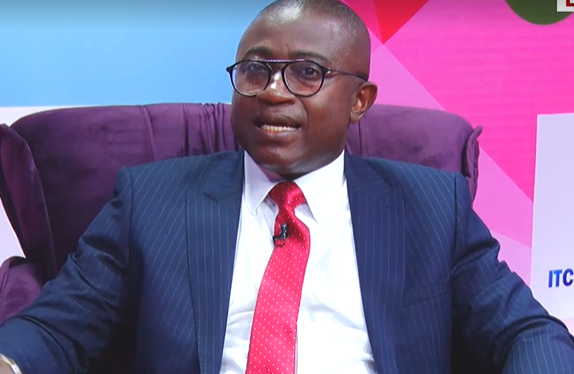Review Forex Act 2006: Relook at requirement for opening FX Accounts - Absa Markets Head
“If you look at our FX market, I think the FX Act was passed in 2006. I think 16 years down the line, we have to relook at it if indeed the provisions as we have them there are really fit for the purpose."

Acting Head of Markets at Absa Bank Ghana Limited, Jacob Brobbey has called for a review of the Forex Act 2006 to serve the country’s current purpose.
He notes that after 16 years of its operation, there ought to specifically be a relook at the provision that allows Ghanaians who are either into Businesses or not to open FX Accounts.
“If you look at our FX market, I think the FX Act was passed in 2006. I think 16 years down the line, we have to relook at it if indeed the provisions as we have them there are really fit for the purpose.
For instance, it actually makes room for Ghanaians whether they are into business or not to actually open a foreign exchange account. Is it something that we see as beneficial because there are schools of thought that believe that has also contributed to the large numbers we see on banks’ balance sheets as foreign currency liabilities I think it's something that as a country we need to look at?"
Speaking as a panel member of the Absa-UPSA Law School Quarterly Banking Roundtable VIII on Thursday, June 16 on the topic; “MONETARY POLICY, CENTRAL BANK LEADERSHIP AND THE STABILITY OF THE CEDI,” Mr. Brobbey further mentioned that there ought also to be a relook at the requirement for operating import businesses which hitherto was mostly for big businesses but has now been dominated by SMEs.
“I think after 16 years, it's time for us to review this and even to look at it. Especially in the past, importers were largely big businesses but now mostly SMEs. Is the requirement for importing really supporting SMEs? It's time central bank and government relooked at our FX Act to see if we can tweak it so that it can serve our purpose."
Concerns on Fiscals
He noted that Ghana lost out on the capital market this year because the fiscal consolidation has been slow, especially for several offshore investors, thus calling for it to be quickened.
“Concerns have been around for some time. I think offshore investors generally think that the fiscal consolidation effort needs to be quickened and that kind of trajectory is not being seen. It is one of the factors why we lost access to the capital market this year. In addition also, since 2007 we have been going to the capital market to raise Eurobond which helps us.”
Are we going to regain access?
He noted that due to external control shocks like Russia’s policy and the Russia-Ukraine War which Ghana has no control of, it will be difficult for us to gain access to the capital market.
However, he called on the Central Bank to rather work on the variables we have control of in order to give the government a breathing space.
“No. We don’t know what is going to happen with Russia’s policies. We have no control over the Russia-Ukraine war so if you ask me I'll say no we need to work on these variables especially ones that we have control over to enable us to regain access to the capital market so that we can give the government the breathing space to reduce the number of borrowings that they borrow from the domestic markets so that funds can be channeled to the real sectors of the economy.
The fact that inflation is not a demand-pull but actually a supply-side challenge, we are likely to see it at elevated levels for a while. The monetary measures have helped. Central Bank announced that they've secured 100 million dollars and also the cocoa syndicated loan which will be coming. All those things should be FX supportive.
In terms of massive FX depreciation, I won't say we are out of the woods for now. I still see the currency depreciating at a moderated pace from now till the close of the year as economic activity levels are far higher than when covid came. Interest rates likely to stay at an elevated level until we see inflation come down."
Market confidence
Ag. Head of Markets at Absa indicated that Market confidence largely feeds from external investors thus important to critically look at it to quicken the pace of fiscal consolidation.
“Market confidence largely feeds on from the external investors, it's about the fiscal play so I think that it's important to, look at that aspect critically and look at how it can double its steps in quickening the pace of fiscal consolidation so that we can regain market confidence, especially from the perspective of offshore investors.
Government should try and outperform its own target in fiscal consolidation plans. The government has already said this year, we plan a fiscal deficit of 1.5. In doing this, it is imperative all Ghanaians come to the table to ensure we pay the right taxes to the government to achieve this target
If market confidence remains a problem going forward, then probably to gain access to the capital market, there may be some form of program that government should consider.”


